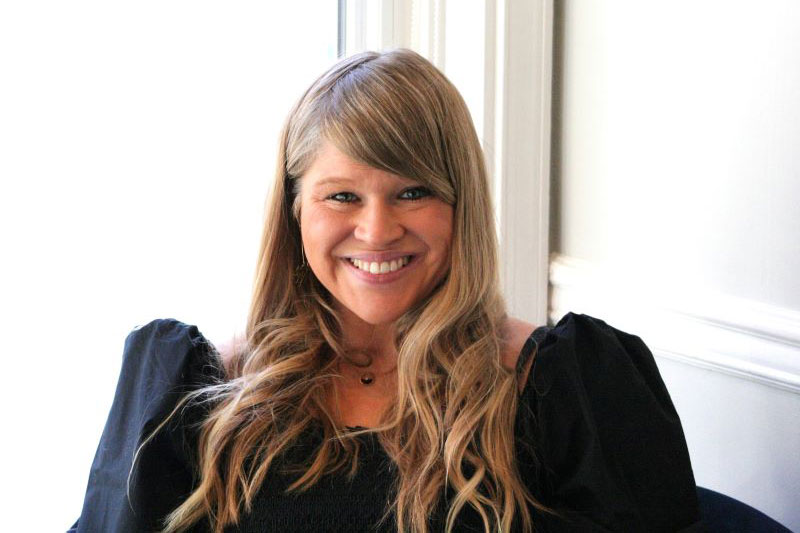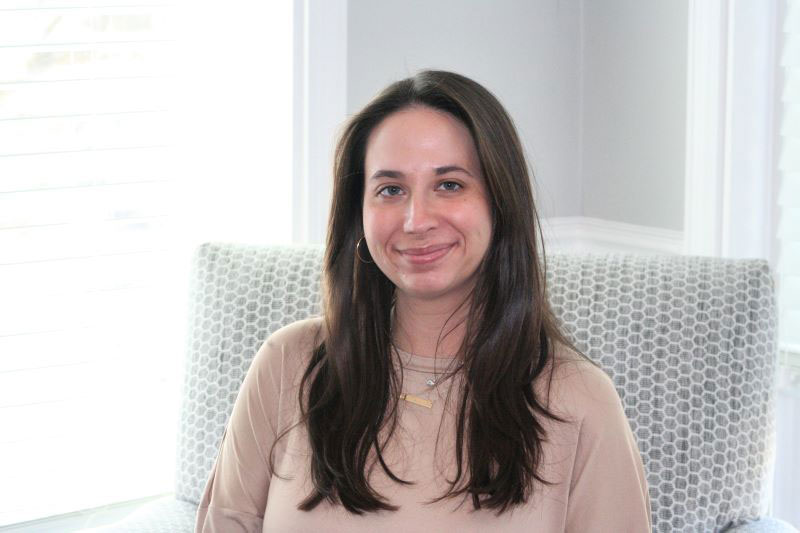Crossroads Family Counseling Center has offered accredited low-cost, quality play therapy training for over 10 years. We are passionate about ensuring children receive developmentally appropriate treatment that allows them to express themselves in their natural language of play. To support the community of families in Fairfax, Crossroads Family Counseling is dedicated to providing evidenced-based play therapy therapist training for providers in Northern Virginia. With the expansion of virtual training options, Crossroads Family Counseling has trained clinicians all over the country and internationally across a variety of play therapy training topics, including theory, play therapy skills and interventions and cultural and social diversity topics.
Crossroads Family Counseling Center speakers are highly qualified presenters with a specialty in play therapy and knowledge surrounding the complexities of working with children and families. We chose the presentation topics based on an annual needs survey of participants and our team. Our therapist training meets the requirements of professionals seeking to attain the Registered Play Therapist credential, as well as clinicians who desire to learn more about the best evidence-based approaches for treating children.
WHO CAN BENEFIT?
CFCC training is suitable for the following professions and credentials:
- Social Workers (LCSW, LICSW, LMSW, LISW, AAW)
- Professional Counselors (LMHC, LCMHC, LPC, LCPC)
- Marriage & Family Therapists (LMFT, LIMFT)
- Play Therapists
- Graduate Students
- and other mental-health related fields
TRAINING PROGRAMS OFFERED AND LEVELS
We offer the following training programs:
In person, Live Synchronous Webinar Training, Clinical Licensure and Registered Play Therapist Supervision, and Consultation
Training courses are labeled with a difficulty level in order to ensure that participants understand which training is most suitable for their current level of training. These levels can be found along with the training descriptions, as well as on promotional materials.
Beginner. Beginner level training means that no previous experience is needed in order to participate.
Intermediate. Intermediate level training means that individuals who attend should have already received a foundation in play therapy, therapy with children, and/or other topic areas being presented.
Advanced. Advanced level training requires individuals who attend to have a strong background in the topic area being presented or have previously attended any pre-requisite seminars, as well as having a strong foundation in the field of play therapy, child psychotherapy, etc.
If you have any questions regarding the difficulty level of an offered training, please feel free to contact us.
ADA Accommodations
If you have a disability that you feel may impede your ability to participate in this workshop, please contact us at least 2 weeks in advance of the workshop in order for us to provide reasonable accommodations. For conferences please inform us of any dietary restrictions.
CONFERENCE SCHEDULE
Morning Training
8:30 – 9:00 Registration and Continental Breakfast
9:00 – 12:15 Training
10:15 – 10:30 Break
12:15 – 1:15 Lunch
Afternoon Training
1:15 – 4:30 Training
2:30 – 2:45 Break
2:45 – 4:30 Training
SYNCHRONOUS WEBINAR SCHEDULE
9:00 am- 12:15 pm
10:30-10:45 Break
CANCELLATION POLICY
- No Refunds for virtual training.
- For in person training, a written cancellation must be received to our office at least fourteen working days prior to the training. A $25.00 processing fee will be deducted from your refund. If you do not notify us a minimum of 14 business days prior to the training of your intent to cancel, you will not receive a refund or credit.
- Crossroads Family Counseling Center, LLC reserves the right to cancel a training or workshop due to inclement weather or not enough attendance. In this event, CFCC will provide you with a full refund.
- In the event of inclement weather, please check your email or voicemail for CFCC notifications/instructions.
INSTRUCTORS:
Crossroads Family Counseling Center speakers are highly qualified presenters with a knowledge surrounding the complexities of working with children and families. Many are specialized in play therapy. CFCC reserves the right to change instructors if needed to ensure effective training. In the event that this takes place, you will be notified of the change as soon as possible.
CONTINUING EDUCATION
LICENSED CLINICAL SOCIAL WORKERS
Crossroads Family Counseling Center, Provider # 2347, is approved as an ACE provider to offer social work continuing education by the Association of Social Work Board (ASWB) continuing Education (ACE) program. Regulatory boards are the final authority on courses accepted for continuing education credit. ACE provider approval period: 11/20/2025– 11/20/2026.
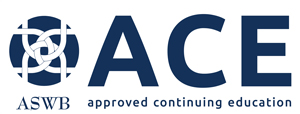
LICENSED PROFESSIONAL COUNSELORS
Crossroads Family Counseling Center (CFCC) has been approved by NBCC as an Approved Continuing Education Provider, ACEP No. 7493. Programs that do not qualify for NBCC credit are clearly identified. CBPS is solely responsible for all aspects of the programs.
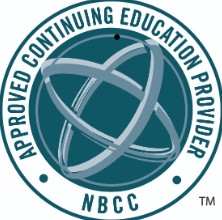
PLAY THERAPISTS
CFCC is approved by the Association for Play Therapy to offer continuing education specific to play therapy. CFCC maintains responsibility for the program. APT Approved Provider 13-360.
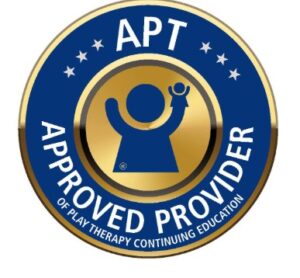
COURSE COMPLETION REQUIREMENTS:
- In person training- You must attend the entire training in person and sign in/out on a sign out sheet. At the end of the training, a course evaluation will be required and then a CE certificate will be immediately issued.
- Live Synchronous Webinar training- You must attend the entire training with your camera on. A post course evaluation will be emailed immediately to you as well as a post test after the training. You will need an 80% passing rate to receive the CE certificate that will be emailed to you once you pass.
QUESTIONS?
Should you require more information, you can reach us at 703-380-9045 or our Training Coordinator, Paige Frasso, LMFT at Paige@crossroadsfamilycc.com.
Crossroads Family Counseling Center supports The Heart Leaf Center, a nonprofit organization also co-founded by Sheri Mitschelen, LCSW, RPT-S. The Heart Leaf Center’s mission is to provide accessible and affordable play therapy in the Center and directly in Fairfax County Public Schools for the most vulnerable families in the Fairfax Community. Crossroads Family Counseling Center provides play therapy training for all team members serving The Heart Leaf Center at no charge.
Both Sheri Mitschelen, LCSW, RPT-S and Jenni Showalter, LCSW, RPT-S are registered play therapy supervisors and provide the Crossroads Family Counseling Center Team, The Heart Leaf Center team, and other local therapists with individual and group supervision to attain the Registered Play Therapy (RPT) credential.

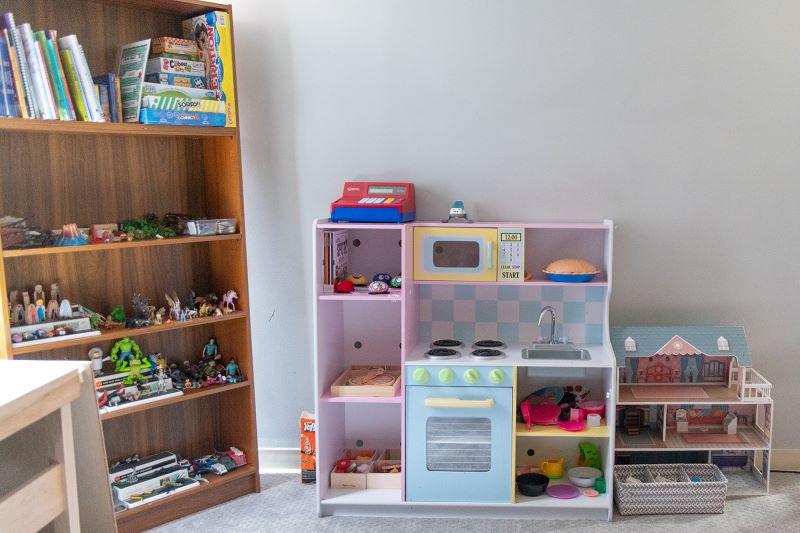 “This is the first virtual training I’ve had on play therapy techniques and virtual play therapy techniques. I found the resources included extremely helpful and enjoyed the training very much. The presenter was very knowledgeable and gave concrete techniques I can incorporate into my sessions.”
“This is the first virtual training I’ve had on play therapy techniques and virtual play therapy techniques. I found the resources included extremely helpful and enjoyed the training very much. The presenter was very knowledgeable and gave concrete techniques I can incorporate into my sessions.”